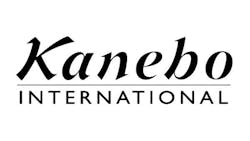Kanebo Battles to Rescue Brand after Skin-Blotch Scandal
TOKYO - Kanebo faces a tough battle repairing its brand image with consumer confidence at "rock bottom" after its products left ugly blotches on customers' faces, observers say.
Japan's second-largest cosmetics firm -- more than a century old and with its reputation for quality now in tatters -- can recover, they say, but it has to move swiftly and surely.
Kanebo's travails are the latest in a long line of public relations disasters that have felled companies of all sizes.
Among the casualties are Boeing's (IW 500/14) troubled Dreamliner jet and automaker Toyota (IW 1000/8), which was forced to recall millions of cars in recent years over safety issues.
A tainted milk scandal in China that left six children dead and sickened more than 300,000 badly scarred the country's dairy industry.
Key to surviving brand-damaging episodes is a quick response that is transparent and genuine, public relations experts say.
"Don't simply broadcast information -- like many Japanese companies do -- but promote two-way communication with all stakeholder groups" including customers, said Daniel Fath, vice president of Tokyo-based Total Communications System.
"Handled properly, a traumatic crisis becomes a valuable learning experience that ultimately strengthens a company's relationships with its stakeholders."
An Apology from the Top
In an effort to put a stop to a spiraling PR disaster, Kanebo's president went before the cameras this week to apologize to customers.
They included nearly 10,000 people left with uneven pigmentation after using its skin-whitening creams, which are popular among women across Asia in search of lighter tones.
The embattled executive pledged to overhaul safety controls at the company while temporarily cutting his salary and that of other senior executives.
But his bid to defuse the situation came as a team of external experts appointed by the firm said it had been late in issuing the recall.
The decision to pull their products from shelves came months after officials had received warnings from doctors who suspected a link between patients suffering skin blotches and the firm's products.
The company -- whose brands include Blanchir Superior and Sensai -- failed to take early measures and was "obsessed with the idea that the skin discoloration was a disease," said Hideki Nakagome, a lawyer who is heading the probe.
Kanebo's image "has nose-dived to rock bottom," said Yasuko Kono, secretary general of Consumers Japan.
Immediate Response Via Social Media
Underscoring the challenges that lie ahead, 51-year-old Mikako Ando said she was relieved at her own brand choices.
"I feel lucky that I don't use Kanebo's products," she said as she strolled in Tokyo's fashionable Ginza district.
Communicating through social media such as Twitter and Facebook is another important way to get the company's message out as it works its way through a crisis, said Rachel Catanach, senior partner and managing director at FleishmanHillard Hong Kong.
A poorly handled product recall can have a "significant long-term impact" on a brand, she added.
"Too often companies wait until they have full information, which is too late in a world of citizen journalists who can release their photo or tell their story via Twitter or other social channels within seconds of it happening," Catanach added.
"Every minute that goes by without an effective crisis response exponentially increases the risk to a company's reputation."
Lessons from Toyota
Toyota, now the world's biggest automaker, "learned reputational lessons the hard way, " she said, after it took a huge hit following massive safety recalls in recent years.
"Toyota went to great lengths to rebuild its reputation," Catanach said.
"Because of this, the Toyota brand has not sustained damage over the longer term."
Kanebo, which counts Japan's Shiseido among its rivals and sells its products in more than 50 countries, has seen retail sales plunge about 20% since the recall in July.
Millions of affected products were removed from store shelves in Japan, Britain and 10 Asian markets including South Korea, Thailand, Singapore, Indonesia, Taiwan and Hong Kong.
Kanebo's parent company, Kao (IW 1000/328), said it would book a loss of about $56 million over compensation costs as its share price dived.
Toshiyuki Kanayama, senior market analyst for Monex Securities, called on Kao to get more involved in the unit's day-to-day operations to avoid a repeat.
"Brand image is important for any business, but it's all the more important in the cosmetics industry," he said.
Kyoko Hasegawa, AFP
Copyright Agence France-Presse, 2013
About the Author
Agence France-Presse
Copyright Agence France-Presse, 2002-2025. AFP text, photos, graphics and logos shall not be reproduced, published, broadcast, rewritten for broadcast or publication or redistributed directly or indirectly in any medium. AFP shall not be held liable for any delays, inaccuracies, errors or omissions in any AFP content, or for any actions taken in consequence.
